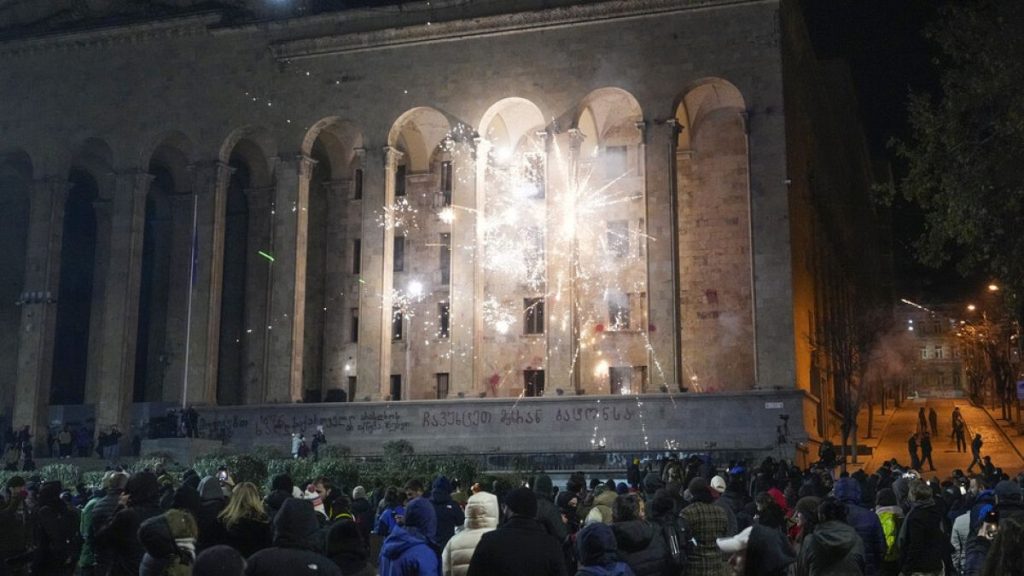The streets of Tbilisi, Georgia, have been ablaze with demonstrations for eleven consecutive days, as tens of thousands of citizens protest against the ruling Georgian Dream party’s decision to postpone the country’s EU accession talks. This decision, a significant setback for Georgia’s European aspirations, has ignited widespread public anger and fueled the ongoing protests. The demonstrations, initially sparked by disputed parliamentary elections in October 2022, have gained renewed momentum and expanded beyond the capital following the EU accession postponement.
The protests have been met with a forceful response from Georgian authorities. Police have employed water cannons, tear gas, and riot police units to disperse the crowds, leading to clashes and allegations of excessive force against protesters. Journalists covering the events have also been targeted, with reports of assaults and intimidation emerging. A separate demonstration was organized specifically to denounce violence against journalists, highlighting the growing concerns about press freedom amid the escalating tensions.
The core of the protests lies in the disputed parliamentary election held on October 26, 2022. The election, widely viewed as a referendum on Georgia’s EU ambitions, was criticized by the opposition for alleged rigging with the assistance of neighboring Russia. Accusations of maintaining a “Moscow-friendly” government have further fueled public discontent and mistrust in the ruling party. The Georgian Dream party’s retention of control in the disputed election further intensified the political climate, setting the stage for the large-scale protests that followed.
The European Parliament’s resolution criticizing the Georgian elections as neither free nor fair added another layer to the unfolding crisis. The resolution pointed to a continued democratic backsliding in Georgia, attributing the responsibility to the ruling Georgian Dream party. This condemnation from the European Parliament further validated the concerns of the protesters and provided additional impetus for their continued demonstrations.
In response to the European Parliament’s criticism, the Georgian Dream party took the controversial step of suspending EU accession talks until at least 2028. This decision, perceived by many as a retaliatory measure, effectively dashed the hopes of Georgians eager to join the European Union. The postponement represents a significant blow to Georgia’s pro-Western aspirations and has galvanized public opposition, leading to the sustained and widespread protests witnessed in Tbilisi and beyond.
The protests represent a critical juncture in Georgia’s political landscape. The Georgian people, fueled by aspirations of European integration and concerns about democratic backsliding, have taken to the streets to voice their discontent. The government’s response to the protests, marked by the use of force and the postponement of EU accession talks, has further inflamed tensions and deepened the political divide. The protesters remain resolute in their demands, vowing to continue their demonstrations until their voices are heard and their concerns addressed. The future trajectory of Georgia’s relationship with the EU and the internal political dynamics within the country hang in the balance. The ongoing protests underscore the deep divisions within Georgian society and the significant challenges facing the country’s path towards democratic consolidation and European integration.














